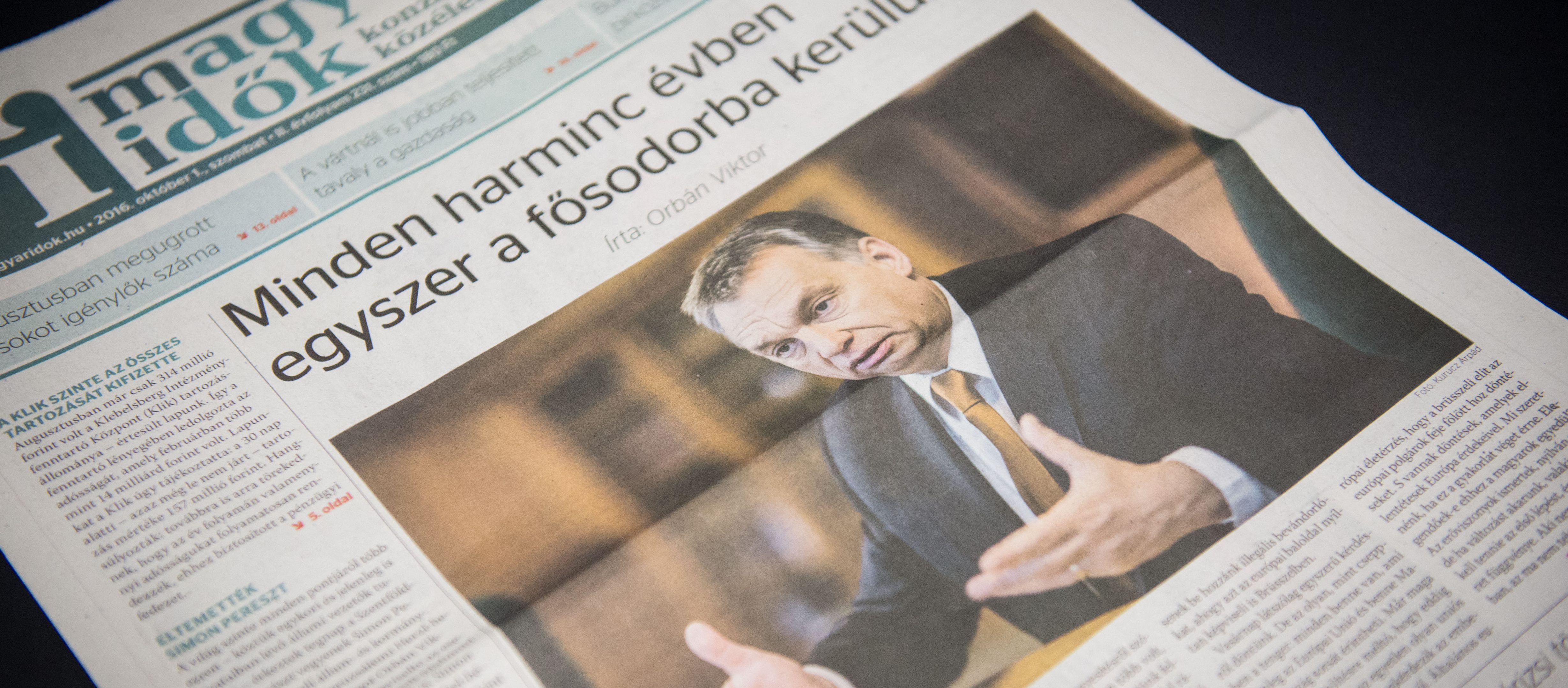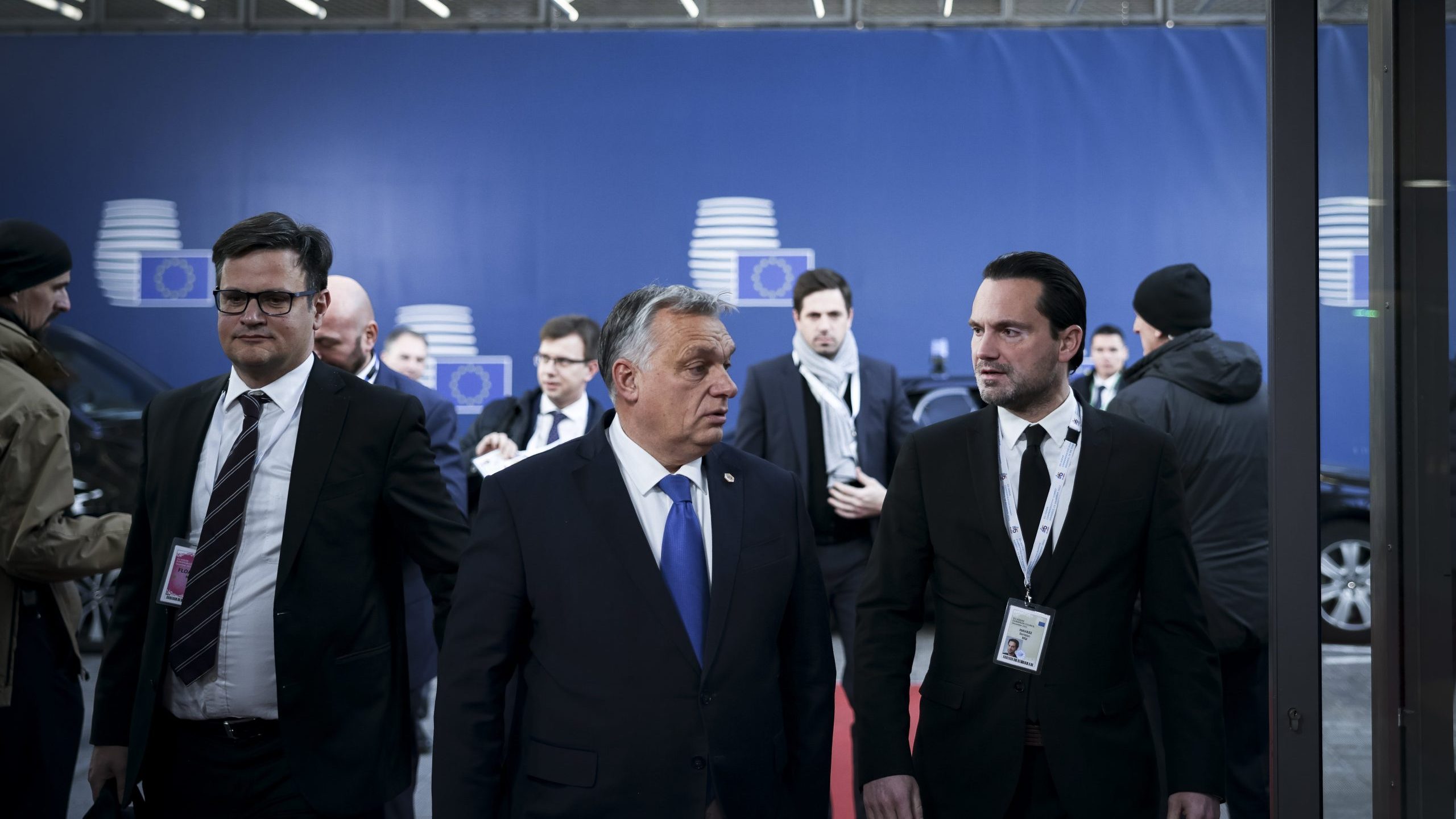
In a full-page article with the title “Every Thirty Years We Find Ourselves in the Spotlight”, the Prime Minister stressed that “There will be many eyes on Hungary on Sunday and, although the question we are deciding on is a seemingly simple one, it includes everything which could now affect the fate of both the European Union and Hungary”.
According to Mr. Orbán, Hungary’s “sensitive geographical position” pushes it, every thirty years, into the “spotlight”: into the mainstream of current European debates. Such was the case in 1956 and in 1989, and now “we are the ones who must stop the massive population movement from the South which poses a threat at Europe’s borders”.
The Prime Minster called uncontrolled migration a real danger, stressing that we are really talking about a massive population movement, “and this is just the vanguard, because the real pressure on Europe will come when the many millions of people waiting in Central Africa also begin to move”. Mr. Orbán said it was obvious that the migrants are not refugees, but are heading to Germany, Austria or Sweden in search of a better life.
However, he also added that, as Christians, clarifying our relationship with the migrants, “we see them as victims”. He said that “They are victims of local conflicts and of the liberal European policies which have led them to believe that they are free to come here and this will be their promised land”. According to Mr. Orbán, the problem is caused by the policies of Brussels, “which invited masses of unfortunate people to Europe with the promise of a better life”.
He said that the facts and experiences concerning migration so far are depressing, highlighting the reduction in public safety and the social, health, cultural and economic consequences. According to the Prime Minister, “Contrary to false illusions, the reality is that it is impossible to make good in any way the shortfall of competitive skills in the labour market with the people who are coming to Europe”, and that “If we truly want to help, then we must take help there instead of bringing the problems here”.
Mr. Orbán also said that Hungary has not been looking for trouble, or for “the role of the European alarm clock”. The country simply sought to defend itself, so that “only we – and nobody else – can decide who we want to live with”.
The Prime Minister said that in Hungary general agreement on historic challenges has always been arrived at with referenda, and this was the case after the fall of communism in 1989 and when the country joined NATO and the EU; the social referendum of 2008 was also conducted on this basis.
“Hungary is the first and – so far – the only EU Member State to ask its people about immigration”, he said, adding that there is a general feeling in European life that the elite in Brussels make decisions above the heads of Europe’s citizens. “We would like this practice to stop”, he said, adding that the Hungarians alone are obviously not enough to effect change, but “if we want change, then someone has to take the first step – and this is not a question of the size of the country”.
“In the coming months we must prevent Brussels from implementing the regulations which seek to force immigrants on us”, he explained. “The countries of the Visegrád Group will also be playing a major role in this, and by next year, following elections in Europe’s largest countries, we shall see in what direction we are capable of changing the European Union”, Mr. Orbán wrote.
“The task on Sunday is to establish unity which is as widespread as possible”, he said. He declared: “Now we need everyone who loves Hungary and who loves it the way it is – with all its faults and virtues – and who does not want others to change it by force. We need everyone who is also committed to Europe and to the original ideals of the European Union, to the diversity of European nations”. According to the Prime Minister, the European Union stands at the crossroads between renewal or disintegration: “The hypocritical moralising, the double standards and the increasing arrogance of the liberal elite and paralysing ideological disputes are setting the European Union on a downward slope”.
According to Mr. Orbán, the Sunday referendum could affect the future of the European Union, and within it the fate of Hungary, and “those who are encouraging people to stay away from the polling stations are weakening our country, reducing our chances and prospects, and risking our independence and our security”.


